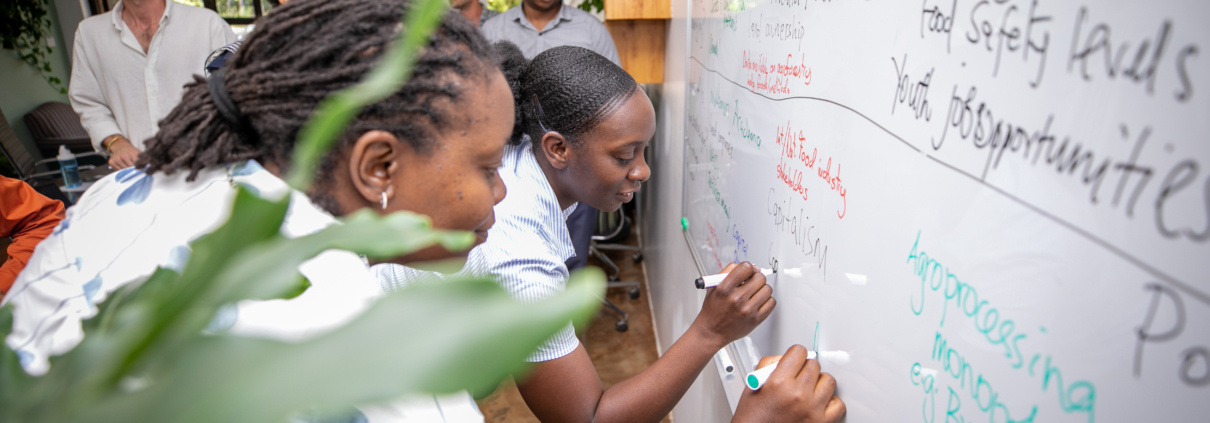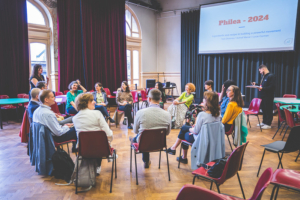Challenges faced by philanthropies and how Wasafiri can help
Latest posts
Share:
Each year philanthropic foundations spend billions of dollars to have a positive impact on complex issues related to food, climate, nature, poverty, health, peace, and inclusion. When addressing complex social issues through a systems change lens though, philanthropic organisations often encounter unique challenges.
Strategic focus
Funding portfolios are often delineated by technical themes such as agriculture, gender, climate change, or livelihoods. However, real-world issues do not exist in silos; they are interwoven and multifaceted.
For instance, improving agricultural productivity can also impact gender equality and climate resilience.
How we can help: Navigating interconnected systems
Philanthropies must adopt a strategic focus that recognises and addresses these interconnections. Through a decade of experience working on systems change, we understand that complex social issues demand nuanced, integrated solutions.
We can help philanthropies recognise interconnected issues and support in developing layered interventions across different thematic areas. This will among other things, allow for opportunities to organise for collaboration.
Our approach helps set strategic objectives that optimise for transformative impact.
Working with grantees
Understandably grantees often prioritise immediate, measurable impacts over long-term systemic change due to pressure from funders and the need to demonstrate positive results. However, addressing underlying conditions requires time and a shift in incentives.
How we can help: Guiding towards systems thinking
We offer resources (such as Systemcraft Essentials) and training that can support grantees in understanding and addressing the all-important root causes. By fostering a mindset that values long-term systemic change over short-term gains, we can help create incentive structures that reward grantees for efforts towards systemic transformation, encouraging them to tackle the deeper issues at play.
Power
Power imbalances are at the heart of many systemic issues. Traditional philanthropy can inadvertently perpetuate these imbalances by maintaining top-down structures where the system will continue to work well for some and less so for others.
How we can help: Rebalancing power inequalities
Our approach advocates for harnessing collective intelligence from the different players involved in a complex issue. We help address asymmetries of information, because these underpin the asymmetries of power.
For instance, we often find that the communities impacted by these issues play an important role in providing information to help with the very issues. This approach not only empowers marginalised groups but also ensures that the interventions are more relevant and effective.
By implementing approaches such as CLRA, we can help elevate the voices of the disenfranchised and drive more equitable outcomes.
Collaboration
Systems change is a long-term endeavour, often requiring decades to achieve substantial or measurable progress. However, philanthropic funding cycles are typically much shorter, which can hinder sustained efforts.
Often, there’s no structure set up beyond individual timeframes and mandates.
How we can help: Catalysing long-term impact
We facilitate the creation of partnerships with other players and stakeholders to pool resources and expertise. By playing an important convening role and by structuring collaborations that transcend individual funding cycles, we ensure that support continues beyond timeframes and mandates.
This collaborative approach catalyses impact and fosters a shared commitment to long-term goals.
Monitoring, evaluation, and learning
Traditional monitoring and evaluation (MEL) frameworks focus on proving impact through inflexible and predefined metrics and outcomes. However, we know that systems change requires a more dynamic approach that values learning and adaptation over static measurement.
How we can help: Helping embrace agility
We help adopt MEL practices that emphasise continuous improvement and responsiveness. Using real-time data and feedback loops, we inform decision-making and continually adjust strategies as needed. By embracing emergence and experimentation, we help you stay agile and effectively navigate the complexities of systems change.
Why should you partner with us?
We have applied system change approaches to a vast diversity of issues such as countering violent extremism in East Africa, ocean-related solutions to the climate crisis, UK healthcare reform, and the manifold crises within food systems.
We work globally with foundations, NGOs, governments, the UN, and corporations in advisory roles, implementation support, and capacity building and most importantly, we understand the unique challenges that come with practising systems change.
Our Systemcraft approach is designed to support you in overcoming these obstacles.
Let us help you tackle these challenges head-on. Partner with us, and together let’s make good, lasting change happen.










